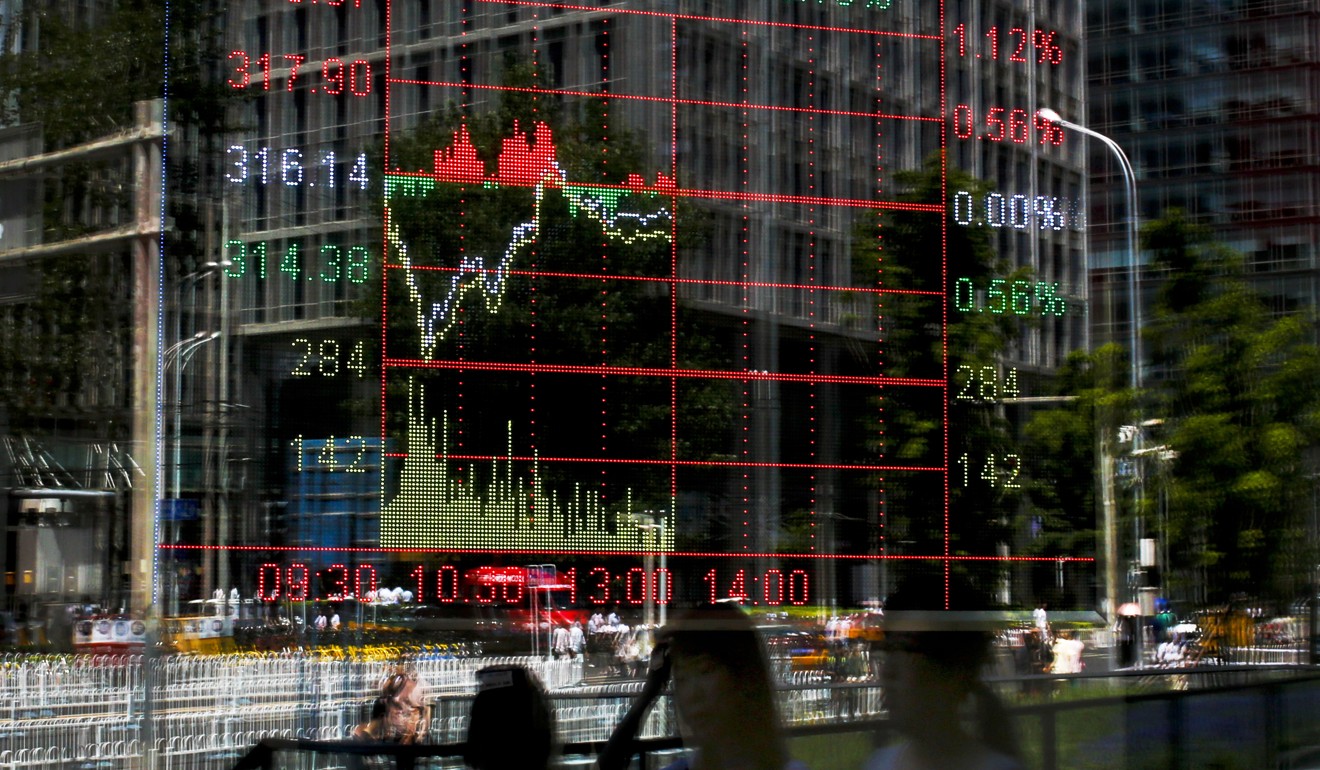
Beijing rolls out the red carpet to woo unicorns to list in Shenzhen or Shanghai
Traditional manufacturers will have to join the queue of more than 600 listing candidates … but those in strategic tech sectors can be on a bourse and trading in a month, says one source close the CSRC

Cash flow? Revenue? Gross merchandise volume? Forget about them, the thing most valued by China’s tech entrepreneurs, and their bankers, is how much the company resembles a “unicorn”.
The term “unicorn” – referring to start-ups worth at least US$1 billion – is becoming the hottest buzzword in China’s business sector after Beijing used the term in context of young companies with superior technology.
And the authority gave the term a clearer definition on Friday night.
It said two types of firms have been selected as “pilot firms” that will enjoy preferred listing policies, according to a set of new rules regarding prioritising certain company stock offerings, issued by the State Council, citing rules made by the China Securities Regulatory Commission (CSRC).
They are, innovative firms with revenue of no less than 3 billion yuan (US$477.7 million) in the most recent year and a valuation of no less than 20 billion yuan, or companies with rapid growth in income, empowered by world-leading tech and research ability and those enjoying an advanced position in peer competition.
Bankers are being urged to submit initial public offering (IPO) materials for unicorn companies under a special fast track, said sources close to the CSRC.
“If you engage in traditional manufacturing, sorry you have to join the queue of more than 600 candidates,” said a source.
“But if you are engaged in strategic tech sectors, big congrats! Jump the queue and you can be on the bourse and trading in a month.”
Since the Lunar New Year, several major banks in China have set up specialised departments to handle the work flow, as well as research companies of interest in Beijing, Shenzhen, Shanghai and Hangzhou.
Tianjin, a city neighbouring Beijing governed by Party chief Li Hongzhong, who is vocal in extolling the virtues of President Xi Jinping’s policies, has backed the development of a campus-style “Unicorn Building”, designed to bring together firms engaged in the sharing economy, big data and deep learning.
Some critics worry, however, that the push to get companies listed on the stock market will not necessarily lead to sustained innovation.
One concern is whether China’s currency controls, designed to restrict outflows from the country to maintain stability of its exchange rate, would constrict how funds from capital raising activities can be put to use.
In the set of new rules issued on Friday night, the authority stipulates that for overseas listed firms, proceeds raised by A-share offerings can be remitted to overseas markets in yuan or in foreign exchange through currency swaps on the mainland market.
But based on China’s track record on capital control, whether the capital remittance could be smooth and timely remains a question.

“This is a core issue that has been discussed by regulators and the founders at tech firms for a long time,” said Ding Lei, chairman of online gaming operator NetEase.
Ding is among a group of mainland Chinese entrepreneurs, including Robin Li from Baidu, and Richard Liu from JD.com, who have declared their willingness to list their companies on the mainland.
Still, some analysts warn that a flurry of share offerings by unicorns, as well as those from Chinese firms listed in the US, will bring headwinds to the market.
Gao Ting, head of China Strategy at UBS Securities, warned in a research note in March that an excess of fundraising activities could swamp the market and pressure sentiment.
“For example, if the top four internet giants in China issued an additional 5 per cent of existing shares as Chinese Depositary Receipts, we estimate 373 billion yuan (US$59 billion) could be diverted from the A-share secondary market,” the note said.
In 2017, the mainland recorded IPO and secondary offering proceeds of 1.7 trillion yuan.
“Enabling onshore investors to access high-quality growth names more easily could also result in a potential increase in the market’s risk appetite and potentially cause a sell-off in overvalued ChiNext stocks,” Gao said.
ChiNext, the Chinese version of Nasdaq, was introduced in Shenzhen in 2009 to help support the financing and development of start-ups.
A large number of China’s leading tech companies have opted to list in either the US or Hong Kong, which have different listing requirements in key areas of shareholding structure and profitability requirements.